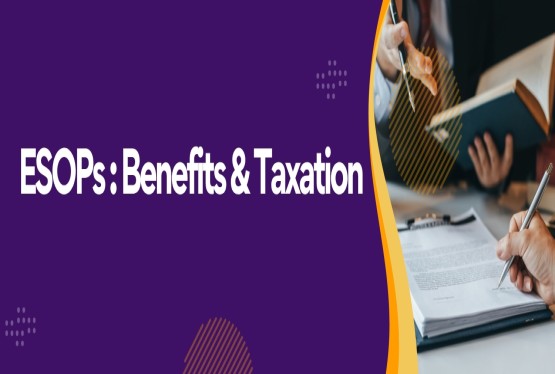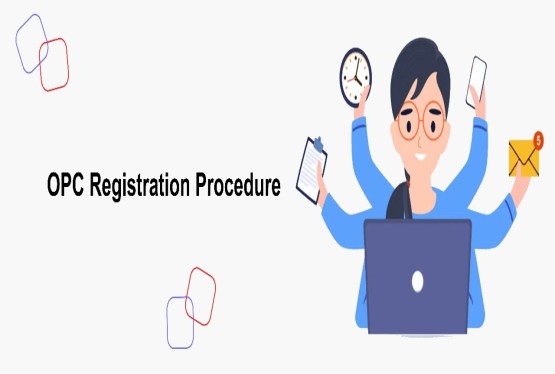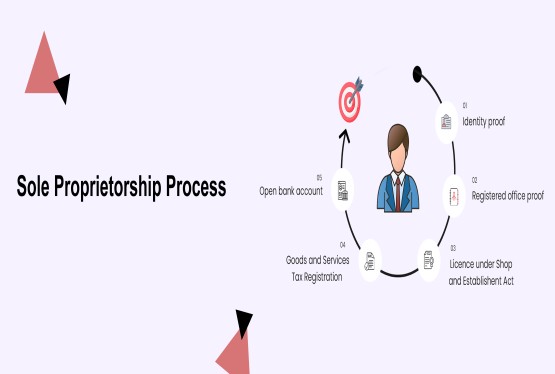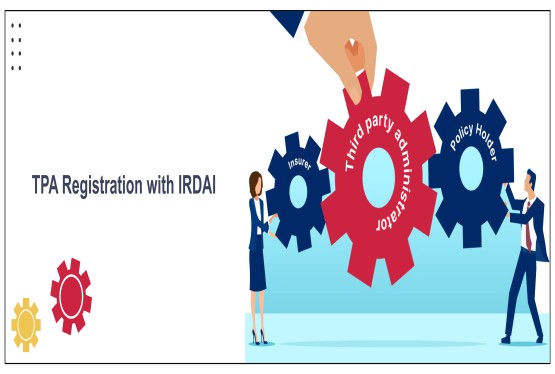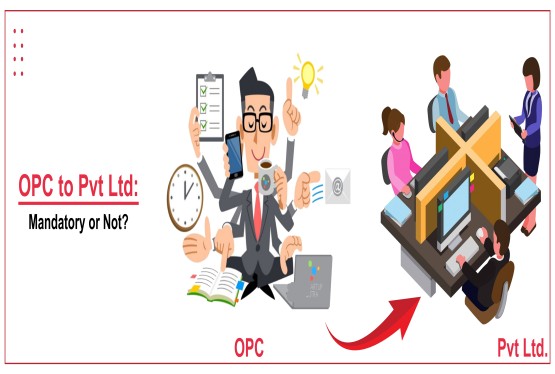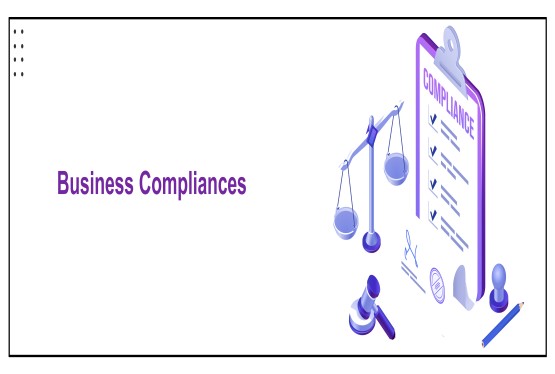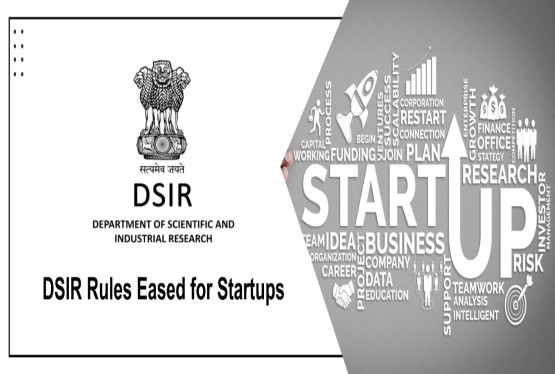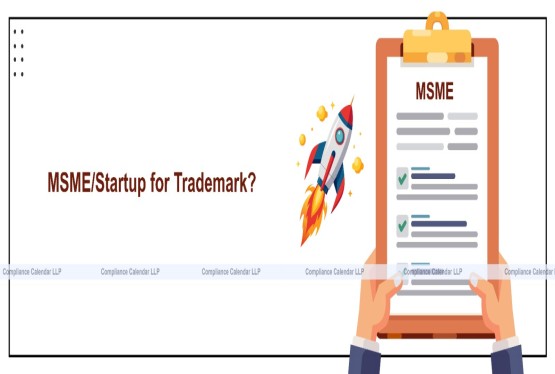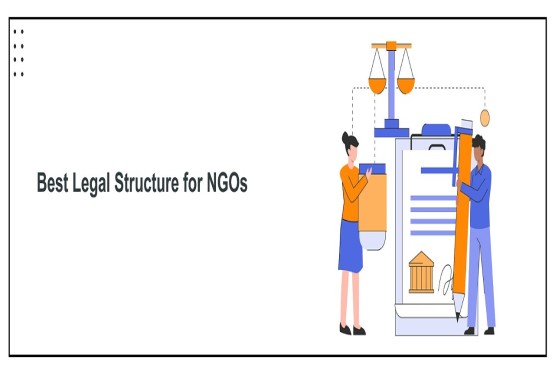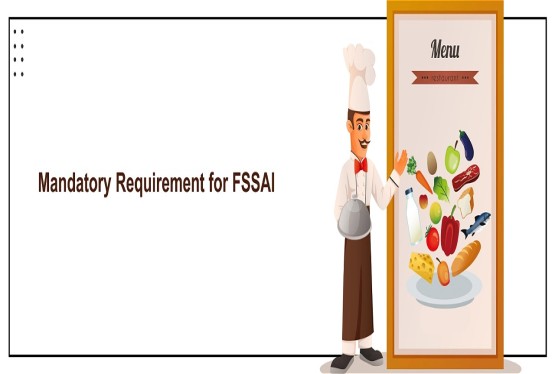India’s rich manufacturing base, competitive labour costs, and government-backed export incentives have made it an attractive hub for global trade. Entrepreneurs and businesses increasingly look to exports as a strategic growth avenue. However, starting and operating an export business in India requires navigating a well-defined legal and regulatory framework. From obtaining the necessary licenses to complying with customs and documentation protocols, legal preparedness is crucial for smooth international trade operations.
This article provides a complete overview of the legal requirements and licenses needed to start and run a compliant export business in India.
Business Registration
Before you can legally export goods or services, you must establish a formal business entity. You can choose any of the following structures:
Proprietorship
A sole proprietorship is the simplest form of business structure, where a single individual owns and manages the business. It requires minimal regulatory compliance and is cost-effective to set up. However, the owner is personally liable for all debts and obligations, and it lacks legal distinction between the business and the individual. Ideal for, Small-scale or low-risk export businesses. Limitation, May not be preferred by international buyers due to limited credibility and no legal separation between personal and business assets.
Partnership Firm
A partnership firm is formed when two or more individuals agree to share profits and responsibilities of a business. It operates under the Indian Partnership Act, 1932, and must have a Partnership Deed outlining the terms of operation. Limitation Unlimited liability of partners and less structured governance can be risky for global business.
Limited Liability Partnership (LLP)
An LLP combines the operational flexibility of a partnership with the limited liability feature of a company. It is governed by the LLP Act, 2008, and is a separate legal entity from its partners. Ideal for, Exporters looking for limited liability and fewer compliances than a company. Advantage of this that Each partner’s liability is limited to their capital contribution, and LLPs enjoy global acceptance for professional and trading services.
Private Limited Company
A Private Limited Company is a separate legal entity registered under the Companies Act, 2013, with limited liability and perpetual succession. It offers high credibility, can raise capital more easily, and is recognized globally. Export businesses aiming for international markets, institutional funding, or long-term growth. And advantages-Ability to issue shares and attract investors, Separate legal identity protects owners’ personal assets and Mandatory statutory audit improves trust among overseas clients and financial institutions
Public Limited Company
Public Limited Company choice of entity impacts liability, taxation, and ease of doing business internationally. Most exporters prefer forming a Private Limited Company or LLP due to their credibility and limited liability.
Documents Required
-
PAN of the business entity- The Permanent Account Number (PAN) issued by the Income Tax Department is mandatory for all entities. It is used for taxation, opening bank accounts, and applying for an Import Export Code (IEC).
-
Business address proof: Electricity/telephone bill, Rent agreement with utility bill and Property tax receipt (if owned): This is needed for GST registration, bank account opening, and business correspondence.
-
MOA and AOA (for companies): Memorandum of Association (MOA) defines the scope and objectives of the company. Articles of Association (AOA) outlines the rules and internal governance of the company. These are essential incorporation documents for a Private or Public Limited Company and are filed with the Ministry of Corporate Affairs (MCA).
-
Partnership deed or LLP agreement (if applicable): A Partnership Deed details profit-sharing ratios, responsibilities, and terms between partners in a Partnership Firm. An LLP Agreement is a legal contract defining roles, capital contributions, and liabilities between designated partners in an LLP. These documents are necessary for registering the firm with the Registrar of Firms (for partnerships) or the Registrar of Companies (for LLPs) and for opening a current account or applying for licenses.
PAN (Permanent Account Number)
The Permanent Account Number (PAN) is a unique 10-digit alphanumeric identifier issued by the Income Tax Department of India. It serves as a fundamental document for any business, including those engaged in export activities. PAN is mandatory for carrying out financial transactions such as opening a current account, filing tax returns, and applying for an Import Export Code (IEC). For export businesses, the PAN must be obtained in the name of the registered business entity whether it's a proprietorship, partnership, LLP, or company ensuring legal recognition and traceability in all domestic and international transactions. Without a valid PAN, exporters cannot proceed with licensing, banking, or customs formalities.
GST Registration
Goods and Services Tax (GST) registration is mandatory if your aggregate turnover exceeds the threshold (Rs.40 lakh for goods; Rs.20 lakh for services). The Goods and Services Tax (GST) is a unified indirect tax that replaced a range of central and state taxes in India. For businesses involved in the export of goods or services, understanding and obtaining GST registration is a crucial legal and financial requirement even if their turnover is initially below the prescribed threshold.
Even if not required by turnover, exporters often voluntarily register for GST to: Benefits of GST Registration for Exporters:
Claim refunds on input tax credit (ITC)
When you buy raw materials, packaging, logistics, or other inputs, you pay GST on those purchases. If you are registered, you can claim a refund of the GST paid on inputs used to produce exported goods or services. This helps to reduce the cost of exports and improves profitability by avoiding tax cascading.
Avail zero-rated supplies under GST
Under GST law, exports are classified as zero-rated supplies. This means exporters can:
-
Export without payment of IGST under a Letter of Undertaking (LUT), or
-
Export on payment of IGST and then claim a refund of the same, Only GST-registered businesses can avail of these benefits. This ensures exporters don't suffer any tax burden on outbound transactions and can compete globally with competitive pricing.
Customs and Compliance Ease
GST registration and filing of GST returns are often required when applying for LUT to export without paying IGST, Generating e-way bills for inter-state movement of goods, Facilitating documentation for customs clearance and matching export invoices with shipping bills, Ensuring a smooth audit trail during refund claims and verification and having GST registration helps exporters avoid procedural bottlenecks and gain credibility with customs, banks, and clients.
Import Export Code (IEC) – Mandatory License
The Import Export Code (IEC) is the most important license for starting any export/import business in India. Issued by the Directorate General of Foreign Trade (DGFT), The Import Export Code (IEC) is a mandatory license issued by the Directorate General of Foreign Trade (DGFT) under the Ministry of Commerce, Government of India. It is a unique 10-digit identification number required by any individual or business that wants to export or import goods and services from India. Without an IEC, businesses cannot legally engage in international trade. IEC is a 10-digit number required for:
-
Clearing shipments through customs at the time of export or import
-
Sending/receiving money from abroad through authorized banks
-
Dealing with foreign clients and banks with international buyers, suppliers, or financial institutions
How to Apply for IEC:
Obtaining an IEC is a simple, fully online process that can be completed through the DGFT portal. The steps are as follows:
-
Register on the official DGFT website: https://dgft.gov.in
-
Fill out the online application form (ANF 2A) with accurate business details
-
Upload the required documents as per the entity type (individual, partnership, company, etc.)
-
Pay the government fee, which is currently Rs.500
-
Upon verification, the DGFT will issue the IEC digitally, usually within 1–2 working days
Documents Required for IEC:
To apply for an IEC, the following documents must be submitted:
-
PAN card of the business entity or the individual (in case of proprietorship)
-
Proof of business address, such as an electricity bill, rent agreement, or property tax receipt
-
Cancelled cheque from the business's current bank account or a bank certificate verifying account details
-
Passport-size photograph and Aadhaar card of the proprietor or authorized signatory (as applicable)
Registration with Export Promotion Council (RCMC)
To access the various benefits offered by the Indian government under the Foreign Trade Policy (FTP) such as export incentives, duty drawbacks, and promotional support it is essential for exporters to obtain a Registration-cum-Membership Certificate (RCMC). This certificate is issued by the relevant Export Promotion Council (EPC) or Commodity Board based on the type of product or service being exported. RCMC not only enables participation in government schemes but also offers access to international trade events, buyer-seller meets, and valuable market intelligence.
FIEO
The Federation of Indian Export Organisations (FIEO) is a multi-product export promotion council that acts as an umbrella organization for exporters of goods and services across various sectors. It is ideal for businesses dealing in multiple categories of products or those who do not fall under the jurisdiction of any specific commodity board or EPC. FIEO provides guidance on export regulations, trade opportunities, logistics, and buyer connections, making it a valuable platform for new and diverse exporters.
APEDA
Agricultural and Processed Food Products Export Development Authority. APEDA is the designated authority for the promotion and regulation of exports related to agricultural and processed food products. This includes items such as fruits, vegetables, meat products, dairy, cereals, and ready-to-eat foods. Exporters dealing in such products are required to register with APEDA to access export incentives, receive updates on international food standards, and participate in global food exhibitions. APEDA also plays a key role in certifying organic products and promoting GI (Geographical Indication) tagging.
Spices Board, Textile Committee, Pharmaceutical Export Promotion Council
The Spices Board of India is the apex body responsible for promoting and regulating the export of Indian spices. Exporters dealing in items like turmeric, pepper, cardamom, cinnamon, and spice blends must register with the Spices Board to obtain their RCMC. The Board also assists exporters in quality certification, lab testing, and connecting with global spice buyers. It plays a pivotal role in ensuring that Indian spices meet international food safety and phytosanitary standards.
RCMC is usually valid for 5 years and is mandatory for availing benefits under the Foreign Trade Policy (FTP).
Product-Specific Licenses and Certifications
In addition to general registrations like Import Export Code (IEC) and GST, exporters may need to obtain product-specific licenses or certifications depending on the nature of their goods and the regulations of the importing country. These certifications ensure that the products meet quality, safety, and compliance standards mandated by Indian authorities or international bodies. Below are the key licenses exporters may require: Depending on the category of goods or destination country, certain additional registrations may be required:
FSSAI License
If your business involves the export of food and beverage items, it is mandatory to obtain an FSSAI license. Issued by the Food Safety and Standards Authority of India, this license certifies that the food products comply with Indian food safety laws and hygiene regulations. Even for processed foods or packaged consumer goods, FSSAI registration is essential for manufacturing, storing, or handling food for export. Many importing countries also look for FSSAI certification as a mark of credibility and compliance.
APEDA Registration
(Agricultural and Processed Food Products Export Development Authority)
Exporters dealing in agricultural and processed food products such as fresh fruits, vegetables, cereals, meat, dairy, or ready-to-eat items must register with APEDA. APEDA provides support in terms of infrastructure development, training, packaging standards, quality certification, and participation in international food trade fairs. Registration is necessary to access government schemes and export incentives related to the agri-food sector. APEDA also plays a key role in issuing organic certification and promoting GI (Geographical Indications) tagged products.
Spices Board License
For exporters involved in the export of spices or spice-based products like turmeric, cardamom, cumin, coriander, pepper, or blended masalas registration with the Spices Board of India is mandatory. The Board is responsible for promoting, developing, and regulating the export of Indian spices. It also ensures that the products meet global safety and quality norms through testing and certification. The Spices Board provides exporters access to analytical laboratories and assistance in quality control, labelling, and packaging and BIS Certification.
Certain products (e.g., electrical equipment, toys) must conform to Bureau of Indian Standards (BIS) norms.
Pharma-Specific Approvals
Export of pharmaceuticals may require approval from the Central Drugs Standard Control Organization (CDSCO) and/or Pharmaceutical Export Promotion Council (Pharmexcil). Exporting pharmaceuticals, APIs (Active Pharmaceutical Ingredients), medical devices, or healthcare products involves a much more regulated process. Exporters must obtain approvals from the Central Drugs Standard Control Organization (CDSCO), which regulates drug safety, efficacy, and compliance in India. In many cases, exporters must also register with Pharmexcil (Pharmaceutical Export Promotion Council), which supports pharma exporters in navigating global regulatory environments. Certain destination countries may additionally require product registration, lab certification, and adherence to WHO-GMP or US FDA norms.
Authorized Dealer (AD) Code Registration
The AD Code is a 14-digit number issued by your bank (authorized dealer) and must be registered at the customs port through the ICEGATE portal. Without an AD Code:
-
You cannot generate shipping bills (required for customs clearance)
-
You won’t receive export remittances officially
This registration links your bank account with the port of export for tracking foreign currency transactions.
Letter of Undertaking (LUT) under GST
The Letter of Undertaking (LUT) is an essential compliance document for exporters under the Goods and Services Tax (GST) regime in India. It allows eligible exporters to export goods or services without the payment of Integrated GST (IGST). By filing an LUT on the official GST portal, exporters declare that they will comply with all GST provisions while exporting goods or services without charging IGST at the time of shipment.
Filing an LUT offers a major advantage it prevents the need to pay IGST upfront, which would otherwise be refunded later through a lengthy process. This helps in preserving the exporter’s working capital, improves cash flow, and reduces administrative burden. It is particularly beneficial for small and medium-sized exporters who may not want their funds tied up in tax credits.
The LUT must be filed annually and is valid for the entire financial year once accepted by the GST department. Only businesses that have not been prosecuted for any serious tax offenses (involving amounts exceeding Rs.2.5 crore) are eligible to file an LUT. Ineligible exporters must export on payment of IGST and claim a refund later.
In summary, filing an LUT is a smart, compliant, and efficient approach to manage taxes on exports, and it is highly recommended for businesses aiming to scale their operations internationally without liquidity stress..
Digital Signature Certificate (DSC)
A Class 3 Digital Signature Certificate is required for:
-
Applying for IEC
-
Signing documents on the DGFT and ICEGATE portals
-
Filing online customs documentation
The DSC must be in the name of the proprietor or an authorized signatory.
Shipping and Customs Registrations
After obtaining all essential business registrations, licenses, and product-specific approvals, exporters must also ensure they are properly registered with customs and shipping-related authorities. These registrations are critical to facilitate the smooth movement of goods across borders, comply with Indian customs regulations, and ensure timely receipt of export proceeds. The key systems and services involved are described below:
ICEGATE (Indian Customs Electronic Gateway)
For e-filing shipping bills and customs documents: ICEGATE is the official e-commerce portal of Indian Customs that enables exporters and importers to electronically file various customs documents such as shipping bills, bills of entry, e-scrips, and other declarations. Registration on ICEGATE is mandatory for businesses involved in international trade, as it provides a direct interface with the customs department. Through ICEGATE, exporters can:
-
File shipping bills for export clearance
-
Track the real-time status of consignments
-
Respond to customs queries
-
Access e-payment facilities for customs duties
-
Retrieve acknowledgement receipts and digital certificates
-
This platform reduces paperwork, minimizes human interaction, and speeds up the customs clearance process, which is crucial for time-sensitive exports.
DGFT’s e-BRC System (Electronic Bank Realization Certificate)
The e-BRC (Electronic Bank Realization Certificate) system, developed by the Directorate General of Foreign Trade (DGFT), is a digital interface that records the receipt of export proceeds in foreign currency through authorized banks. Exporters must ensure that their banks upload the BRC data to the DGFT portal, which then matches it with the shipping bill details submitted via ICEGATE.
The e-BRC acts as proof that the exporter has realized payment against the exported goods/services a requirement for claiming benefits under schemes like RoDTEP, MEIS, and Advance Authorization. Registration with this system helps streamline the process of availing export incentives and fulfilling compliance requirements under the Foreign Exchange Management Act (FEMA).
CHA (Customs House Agent)
A Customs House Agent (CHA) is a licensed professional or organization authorized by the customs department to act on behalf of exporters and importers in handling customs clearance. Although exporters can deal directly with customs authorities, engaging a CHA is often recommended especially for new or high-volume exporters due to the complexity of documentation and regulatory procedures.
-
CHAs are experts in:
-
Filing shipping bills and other customs documents
-
Coordinating with port authorities and shipping lines
-
Classifying goods under the correct HS code
-
Calculating duties and benefits
-
Ensuring compliance with customs and foreign trade regulations
-
A CHA acts as a valuable intermediary, helping exporters save time, avoid procedural errors, and ensure that shipments are cleared without delays or penalties.
Conclusion
Starting an export business in India opens up global opportunities, but only if the legal and regulatory framework is properly followed. From obtaining an Import Export Code to registering with export councils and customs, each step involves specific compliance obligations. Not meeting these can lead to shipment delays, denied incentives, or even penalties.
By ensuring all licenses and registrations IEC, GST, RCMC, AD code, and product-specific approvals are in place before beginning operations, exporters can focus on business development, overseas buyer relationships, and profitability. For smooth execution, many new exporters engage professional consultants or agencies well-versed in DGFT and customs procedures.
With the right legal foundation and ongoing compliance, India’s vast export potential can translate into a successful and sustainable business.
General Queries
Q1. Is ICEGATE registration mandatory for all exporters in India?
Ans. Yes. Registration on ICEGATE (Indian Customs Electronic Gateway) is mandatory for all exporters who intend to file shipping bills electronically and interact with Indian Customs. Without ICEGATE registration, exporters cannot digitally submit shipping documents, track consignments, or avail various customs services.
Q2. What is an e-BRC and why is it important for claiming export incentives?
Ans. An e-BRC (Electronic Bank Realization Certificate) is a digital certificate uploaded by authorized banks on the DGFT portal, confirming the receipt of foreign exchange against export shipments. It is crucial for exporters as it serves as proof of payment realization and is required to claim government incentives such as RoDTEP, MEIS, or Advance Authorization.
Q3. Can an exporter file customs documents without a Customs House Agent (CHA)?
Ans. Yes, exporters can file customs documents directly through the ICEGATE portal. However, due to the complexity of HS code classification, compliance rules, and document accuracy, many exporters especially beginners or those handling large volumes prefer to hire a CHA to avoid errors and delays in customs clearance.
Q4. What information is needed to register on the ICEGATE portal?
Ans. To register on the ICEGATE portal, exporters need:
-
A valid Import Export Code (IEC)
-
PAN of the business
-
Authorized signatory’s details
-
Valid email ID and mobile number
-
Digital Signature Certificate (DSC), which is required for document authentication
Q5. How does the e-BRC system benefit exporters and the DGFT?
Ans. The e-BRC system streamlines the export payment tracking process by allowing banks to directly upload foreign remittance data onto the DGFT portal. This ensures:
-
Faster validation of export proceeds
-
Automated linking of shipping bills and bank payments
-
Reduced paperwork and errors
-
Efficient processing of export benefit claims: It creates a secure and centralized record, simplifying compliance under both GST and Foreign Trade Policy.

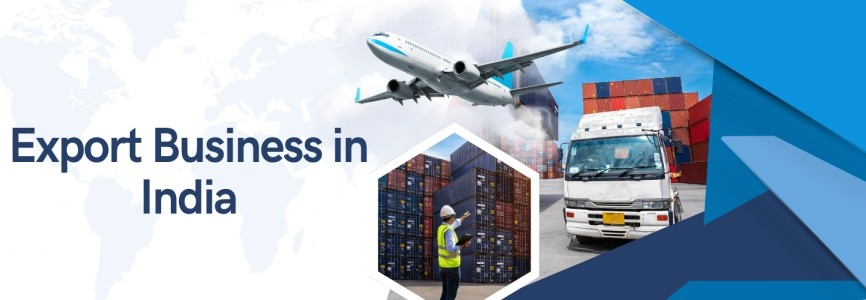










_crop10_thumb.jpg)





_crop10_thumb.jpg)




























-Form_crop10_thumb.jpg)

_crop10_thumb.jpg)























_learn_crop10_thumb.jpeg)
































_crop10_thumb.jpg)

_crop10_thumb.jpg)





















_crop10_thumb.jpg)















_for_Foreign_Directors_learn_crop10_thumb.jpeg)




_Act,_2015_learn_crop10_thumb.jpg)
































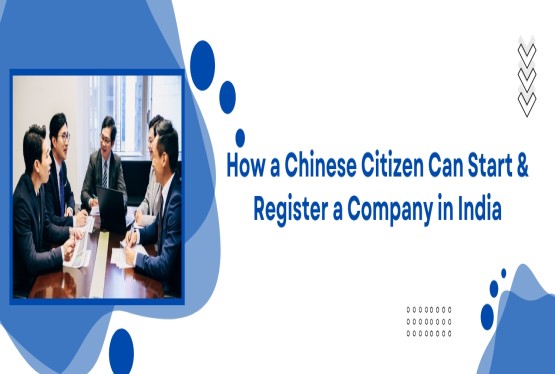

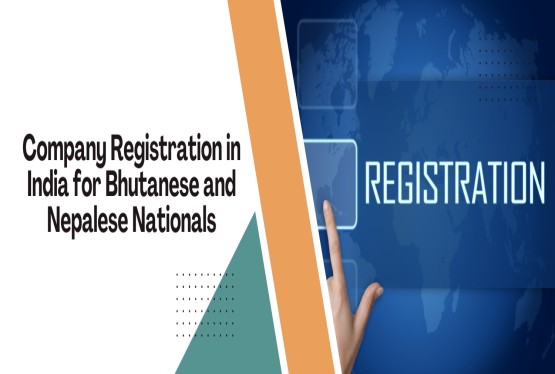
_learn_crop10_thumb.jpg)
















